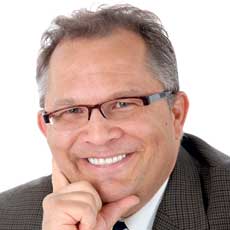
Pew Research recently asked people how long they wanted to live. The researchers found 69% of respondents gave an age between 79 and 100 years old. The median ideal life span was 90, according to Pew.
The key to not only achieving this ideal life span, but also enjoying it, is to extend our “health span,” or the period of life in which we enjoy optimal health. For many of your residents, the question is how?
The International Council on Active Aging®, the professional association that has led, connected and defined the active-aging industry since 2001, offers the following tips to help answer the question.
Expectations
The first place to start is with your residents’ expectations. If your residents have been following a healthy lifestyle, simply encourage them to keep going. If they need to make changes, help them to manage their expectations, while anticipating success — and don’t let their age be a barrier. Research has shown that people who think positively about getting older may live as much as 7.5 years longer than those who view this stage of life negatively.
Enthusiasm
Few people are thrilled with every aspect of their lives, but many have at least one area — family, friends, work, hobbies — that they feel good about. Identify an activity or connection that sparks your residents’ enthusiasm. Help them extend that enthusiasm into other areas of life.
Energy
Having the energy and motivation to age well are hallmarks of healthy living. If your residents feel fatigued all the time, don’t let apathy and lethargy drag them down. Suggest they get a checkup to determine the cause — and the solution. In most cases, this lack of energy is related to lifestyle. The solution: Help them reshape their lifestyle habits (e.g., improved sleep, more physical activity, better nutrition, greater socialization, and managing their schedules better).
Eating
Eating a balanced diet and attaining/maintaining a normal weight are keys to physical and mental health. If your residents need to lose weight or make changes in their diet, keep their expectations real. They can do it. You can also play a key supporting role with the food choices you offer residents in your cafes and dining rooms.
Exercise
Staying physically active fuels the body and mind. If residents are already exercising regularly, encourage them to keep it up. If they’re getting started, counsel them to know their abilities and skill level, set appropriate goals, progress at their own pace, and to be consistent. Exercise will not “break” them; it will make them stronger, fitter and healthier.
Engagement
Volunteering and other forms of civic and social engagement can play an important role in maintaining good health in later life. Research shows that volunteers have higher levels of well-being and life satisfaction than nonvolunteers. So encourage your residents to get involved. It’s good for them — and for society.
Emotions
Everyone feels down at times, but full-blown depression is a major cause of disability. If your residents are feeling out of sorts for two weeks or more, suggest they talk to a doctor or take an online screening test. In many instances, exercising and eating right can help change their mood for the better.
Education
Lifelong learning is important to an independent and fulfilling life. Urge your residents to explore a new area of knowledge or learn a new type of physical activity. Their brains will thank them.
Effort
It takes energy and effort to change expectations and embark on new behaviors, but the results are worth it. Encourage your residents to think about this effort as an investment in the life they want to live now, and in the years to come.
Enjoyment
A healthy life generally is a joyous one. If your residents want to live a long life, inspire them to savor the process of being or becoming active, engaged, and truly alive by focusing on the overall picture and enjoying the journey.
There is no time like the present to take stock of the programs and services you offer.
Ask yourself, “What can I deliver today, and in the future, that will help my residents age well?” Then set out to make it happen.
Colin Milner is the CEO of the International Council on Active Aging.



